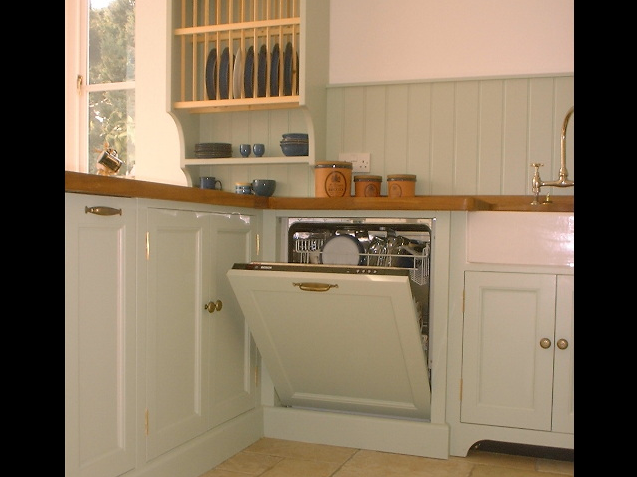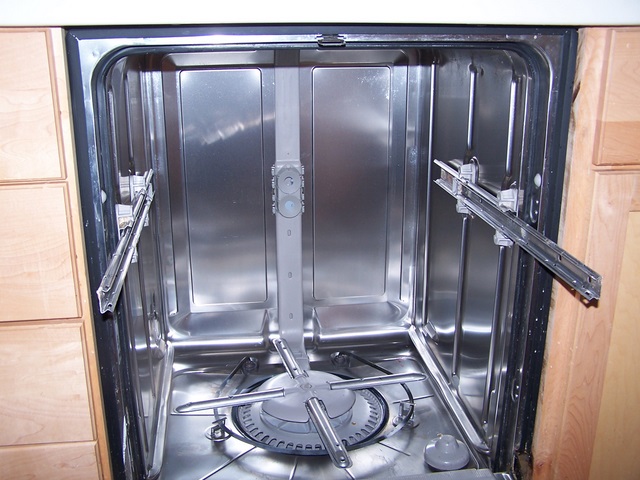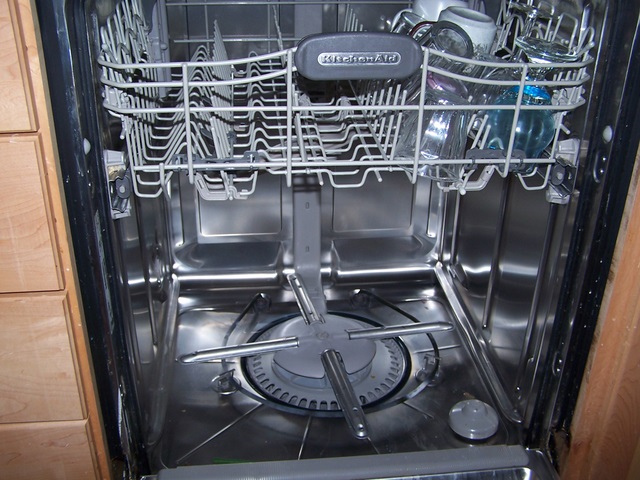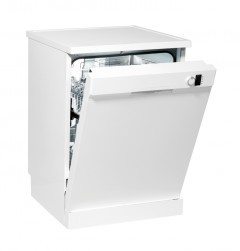8 Reasons For Beeping Dishwashers
 Having your dishwasher breakdown is a massive inconvenience. The thought of all those long years of peace in the household giving way once again to bitter conflict as struggle ensues over who has to wash the dirty dishes. But the good news is that the dishwasher is the most likely to appliance to malfunction as a result of simple issues that can be easily resolved, without requiring expensive dishwasher repairs.
Having your dishwasher breakdown is a massive inconvenience. The thought of all those long years of peace in the household giving way once again to bitter conflict as struggle ensues over who has to wash the dirty dishes. But the good news is that the dishwasher is the most likely to appliance to malfunction as a result of simple issues that can be easily resolved, without requiring expensive dishwasher repairs.
Furthermore, unlike geysers and circuit boards, fixing a dishwasher is not a matter of urgency. So you have time to troubleshoot the fault and see if it is one of the many issues that you can resolve yourself. Here are just a few examples of common dishwasher problems:
Safety First: The first thing to bear in mind is that a dishwasher is an electrical device, and thus you are required to follow electrical safety guidelines when carrying out DIY dishwasher repairs. If you suspect the problem requires electrical work to fix, take the safe option and call a professional, unless you have experience working with electronics. Electrical components will usually be located in the door and at the base, and can be accessed via the inspection panel or by removing the inner door. These parts can carry current even when the dishwasher is switched off and unplugged.
Dishwasher won’t turn on
- The first thing to do is check the plug and socket. Try plugging another small appliance into the same socket and see if it works. If it does, the problem is with the dishwasher.
- Check the dishwasher door is properly closed.
- Check to see if the dishwasher door latch is broken. Most dishwasher door latches are made of plastic, and if they’ve degraded to the point where they can’t hold the door closed then the dishwasher won’t start.
- Try resetting the dishwasher. You can find instructions on how to do this in the manual.
- Was there a power surge? Again, reset the appliance by pressing the reset button. In addition, some dishwashers have their own circuit breakers which can be reset.
- Other components that could prevent the dishwasher from turning on are the thermal fuse, the door switch and the main control board. Checking the condition of these components will require you to remove the control panel, so you may want to contact a professional unless you’re familiar with the inner workings of a dishwasher.
Need Home Appliance Insurance? – Cover for all your home appliances
Click Here for a quote!
Dishwasher not Draining
 This is usually a problem with the dishwasher drainage systems or with the house plumbing. Here are some routine checks you can make before calling a professional:
This is usually a problem with the dishwasher drainage systems or with the house plumbing. Here are some routine checks you can make before calling a professional:
- Remove, clean and replace the filters. You’ll find them in the bottom of the dishwasher, and they’re easy to twist and pull out.
- Pull the dishwasher away from the wall and check the waste hose. If it’s squashed it may not be able to drain properly.
- A blockage in your sink could also prevent proper drainage, if the dishwasher waste water pipe is connected to it.
Dishwasher making beeping sounds
If your dishwasher starts beeping, it is probably a sign of either incorrect use or a part that needs replacing.
Electronic appliances such as dishwashers often come inbuilt with electronic sensors, which may make beeping sounds or display blinking lights to caution the appliance user that something is wrong. It is important to note here that the combination of beeping and lighting display mean different things in different dishwasher models.
Turn off the dishwasher and check for any of the following that could be causing your dishwasher to beep:
- Did you open the dishwasher door before the cycle was complete? If so the appliance may memorise the cycle status and will not start a new cycle the next day. Check your appliance’s instruction manual on how to reset the appliance.
- Have you added rinse aid or coarse salt? Check your dishwasher handbook on how to refill this.
- Have a technician check the pressure switch or flow meter.
- Have a technician check the reed sensors for normal wear and tear – these detect obstruction to the dishwasher spray arms.
- Is the dishwasher beeping in tandem with blinking lights? This may indicate anti-flood device activation. This means that the dishwasher sensors have detected water in the casing and has stopped working to prevent the water in the drum from leaking over your floor. If it is an integrated model, sponge off water in the base. If it is a freestanding appliance, tilt the machine slightly to drain out the excess water.
Prevent dishwasher problems by keeping it in good condition
 It is estimated that you save three weeks a year by using your dishwasher! Regular cleaning and maintenance of the dishwasher will ensure that it continues to work without developing a fault and so saves you hours every week.
It is estimated that you save three weeks a year by using your dishwasher! Regular cleaning and maintenance of the dishwasher will ensure that it continues to work without developing a fault and so saves you hours every week.
Also be sure to read the dishwasher instruction manual. According to service engineers on UK White Goods, most dishwasher problems are down to people not knowing how to look after their dishwasher because they didn’t read the instruction manual.
Please remember:
Appliances should be serviced regularly according to the manufacturer’s instructions found in the product manual. If you have a problem with an appliance, call in a NICEIC or Gas-Safe registered appliance engineer to repair your appliance. Don’t forget that if your appliance is not working optimally, you should also have it serviced to prevent causing damage to the appliance.



 Having your dishwasher breakdown is a massive inconvenience. The thought of all those long years of peace in the household giving way once again to bitter conflict as struggle ensues over who has to wash the dirty dishes. But the good news is that the dishwasher is the most likely to appliance to malfunction as a result of simple issues that can be easily resolved, without requiring expensive dishwasher repairs.
Having your dishwasher breakdown is a massive inconvenience. The thought of all those long years of peace in the household giving way once again to bitter conflict as struggle ensues over who has to wash the dirty dishes. But the good news is that the dishwasher is the most likely to appliance to malfunction as a result of simple issues that can be easily resolved, without requiring expensive dishwasher repairs. This is usually a problem with the
This is usually a problem with the  It is estimated that you save three weeks a year by using your dishwasher! Regular cleaning and maintenance of the dishwasher will ensure that it continues to work without developing a fault and so saves you hours every week.
It is estimated that you save three weeks a year by using your dishwasher! Regular cleaning and maintenance of the dishwasher will ensure that it continues to work without developing a fault and so saves you hours every week.